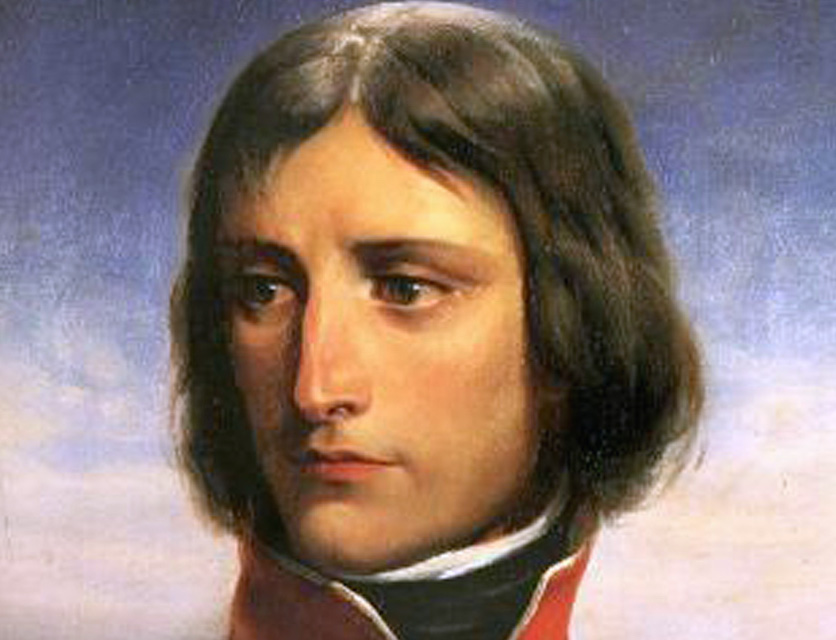
November 30, 2023

Napoleon, aged 23
Source: Portrait by Henri Félix Emmanuel Philippoteaux
The French are up in arms, as always; the Brits have raised eyebrows; and the Americans are nonplussed, as they thought Napoleon was a brandy. The brouhaha has to do with the latest movie about the Emperor of the French, one I am told contains great battle scenes but also saturnine mumbles from Joaquin Phoenix as Napoleon. When I was young, the Corsican-born great was my hero. Did you, by the way, know that Napo ranks third behind our Lord Jesus and a certain Adolf Hitler in the number of books written about him? I have read many of them, including Ludwig’s definitive biography, but dictators nowadays are very out of fashion, especially dictators who kept mistresses (22) and waged wars (nonstop).
There is nothing new to write or say about Napoleon that hasn’t already been said or written, so I will stick to the movie, which I haven’t seen. Ridley Scott is a great director and knows the period well. He made a wonderful film called The Duellists starring my friend Harvey Keitel—a former United States Marine, and also a nice Jewish boy from Brooklyn playing a Napoleonic officer and managing to pull it off. There have been around 1,000 short and long films about Napo, my least favorite being Sergei Bondarchuk’s Waterloo, starring Rod Steiger. Shot in the Ukraine, the spectacle was great—he managed to get 15,000 extras and 2,000 cavalrymen—but the central character was straight out of the Actor’s Studio in New York: a Jewish neurotic contemplating his fate according to Lee Strasberg. It was, in other words, bullshit.
What audiences don’t always realize—and why should they?—is that they’re there to be entertained, not to be educated in the finer points of warfare; in a real battle of the period no one could see anything farther than three feet away or so. The reason was cannon smoke, and wars back then, and still today, are fought by cannon fire. Marshal Ney lost three horses under him during the daylong Waterloo fight, and no one knows whether by friendly or hostile fire. Ney, a hero, survived the battle only to be executed later on by fat Louis the XVIII.
But I’m getting away from the movies and Napoleon. Fans of the Corsican are still crossing themselves in thankful reverence that Stanley Kubrick never managed to film their hero. Kubrick had secured 30,000 extras, and Jack Nicholson was going to star. I’ve often wondered how Nicholson would have sounded as the French Emperor. In some ways I’m glad Kubrick never made the film. Watching old Easy Rider Jack half stoned with a joint in his mouth riding his white stallion Marengo would have been disconcerting for some of us less-than-hardy folk.
In the case of Joaquin Phoenix as Napoleon, many Frogs I’m sure would prefer more of a highbrow thespian, but look at the case of Marlon Brando as the Corsican in Désirée, a flick from the early ’50s. Brando was good, if too American, but the conflation of military greatness and acting works only in theory. The movie was a bust, unlike the battle scenes in War and Peace, the seven-hour Soviet-made classic that also went down Swanee. People forget that Napoleon had one major battle while in Russia, Borodino, a tie, and spent the rest of his time chasing after Kutusov and losing close to half a million men to the snow.
Never mind, and thank God for the movies. Otherwise, in real life, Napoleon and Wellington between them managed a shocking 41 percent mortality rate of their troops. Film shields us from the real horrors of battle: open entrails being eaten by birds, scavengers ransacking the dead and wounded, teeth being extracted from the fallen, the desperate cries of the wounded and the dying, the horrible smells. Even worse are the carcasses of horses, the terrible suffering of innocent wounded animals. Pass the popcorn.
Michael Mailer, the filmmaker who has seen the movie and loved the battle scenes, did not notice Josephine’s black teeth because they are pearly white in the movie. In real life la “grande horizontale” had eaten much too much sugar back in her native Martinique, but Napo didn’t seem to mind. All I know is I’m dying to see the film, and to hell with the French critics who find it insulting.
Let’s face it. Napoleon was the greatest of his period, conquering most of Europe and establishing the Napoleonic code that still rules the French today—where a man could divorce his wife at will, but she could only divorce him if he brought his mistress home to live with him. (The law has since been changed.) Napo was a child of the revolution that overthrew the complacent ruling elite. Voltaire and his ilk of philosophers stirred anti-monarchist and anti-clerical outrage that burst open in 1789. He played along, growing ever more reactionary with his victories until he crowned himself emperor. It was mostly downhill after that, his death in exile at St. Helena the final humiliation.
So thank God for the movies that show mostly the good times. The Corsican is a natural for movie stardom, good-looking—in real life 5 foot 4—the greatest strategist of his time, a womanizer, and the most beguiling subject of greatness and fall of the past 300 years.